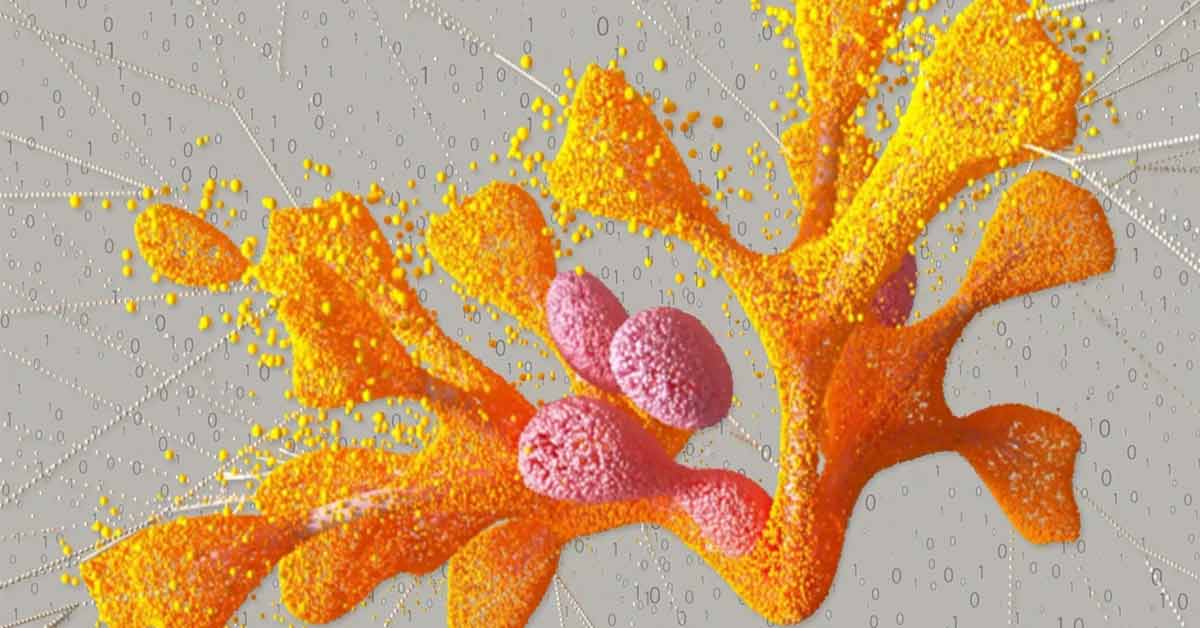AlphaMissense by Google DeepMind is a game-changer in the world of genetic mutation predictions. It’s basically a machine-learning model that can analyze missense variants and predict the likelihood of them causing a disease. Dealing with missense variations in our human genome is a very challenging task for scientists.
AlphaMissense by Google DeepMind is here to help with that task, especially identifying the troublemakers that significantly impact our health.

Using AI and machine-learning for the medical and health industry is not a new thing in this booming new AI era. There are already tools like AlphaMissense for this.
Now, even Medical AI Chatbots do exist, like Med-PaLM 2. Bigger Tech Titans are already joining this AI and health game, like Priscilla Chan and Mark Zuckerberg, with their Chan Zuckerberg Initiative (CZI).
But let's talk more about this AlphaMissense by Google DeepMind and how it's supposed to be better at its job than AlphaFold.
AlphaMissense - A Breakthrough in Genetic Mutation Prediction
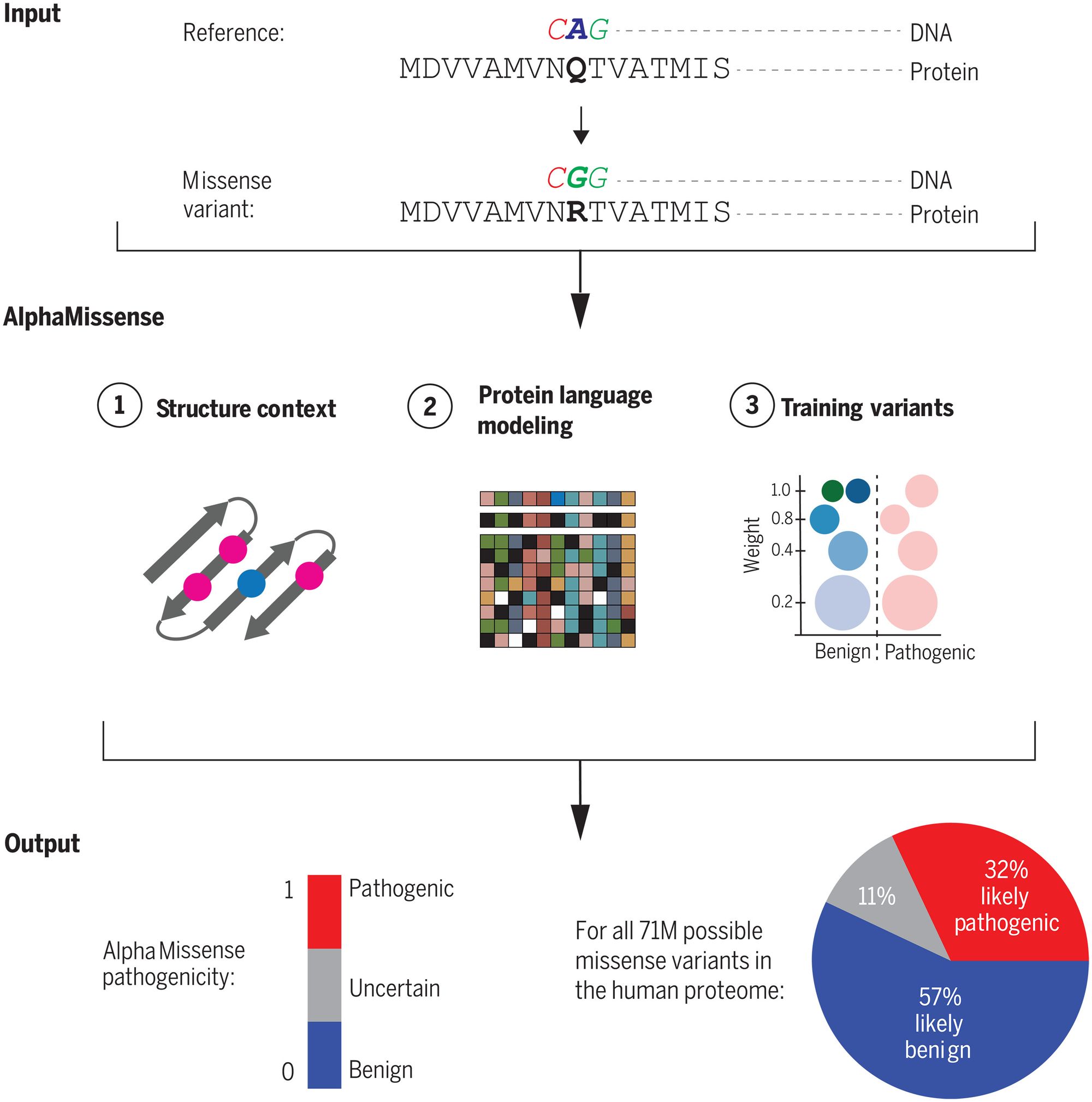
Google DeepMind's AlphaMissense offers hope in identifying the significance of missense variations in genomics, and that is the simplest explanation.
So, what exactly is AlphaMissense, and why is it making so much fuzz in genetics? Well, that's an interesting story. Let me explain. It all begins with its parent program, AlphaFold.
AlphaMissense is like AlphaFold's clever offspring, specifically tailored to tackle the mystery of missense variants. It's as if AlphaFold handed over the reins to its protege and said, "Go and crack the genetic code!"
But what makes AlphaMissense so remarkable is its fine-tuning of population databases containing genetic information from humans and primates.
Let's say AlphaMissense has a superpower – it can predict the pathogenicity of missense variants with astonishing precision.
Decoding & Understanding Missense Variants
Think of missense variants as genetic errors within the human genome. Imagine your DNA as an immense book with billions of letters, and a missense variant is akin to a single-letter typographical error. Genes are basically the blueprints for constructing proteins or we can say the fundamental components of life.
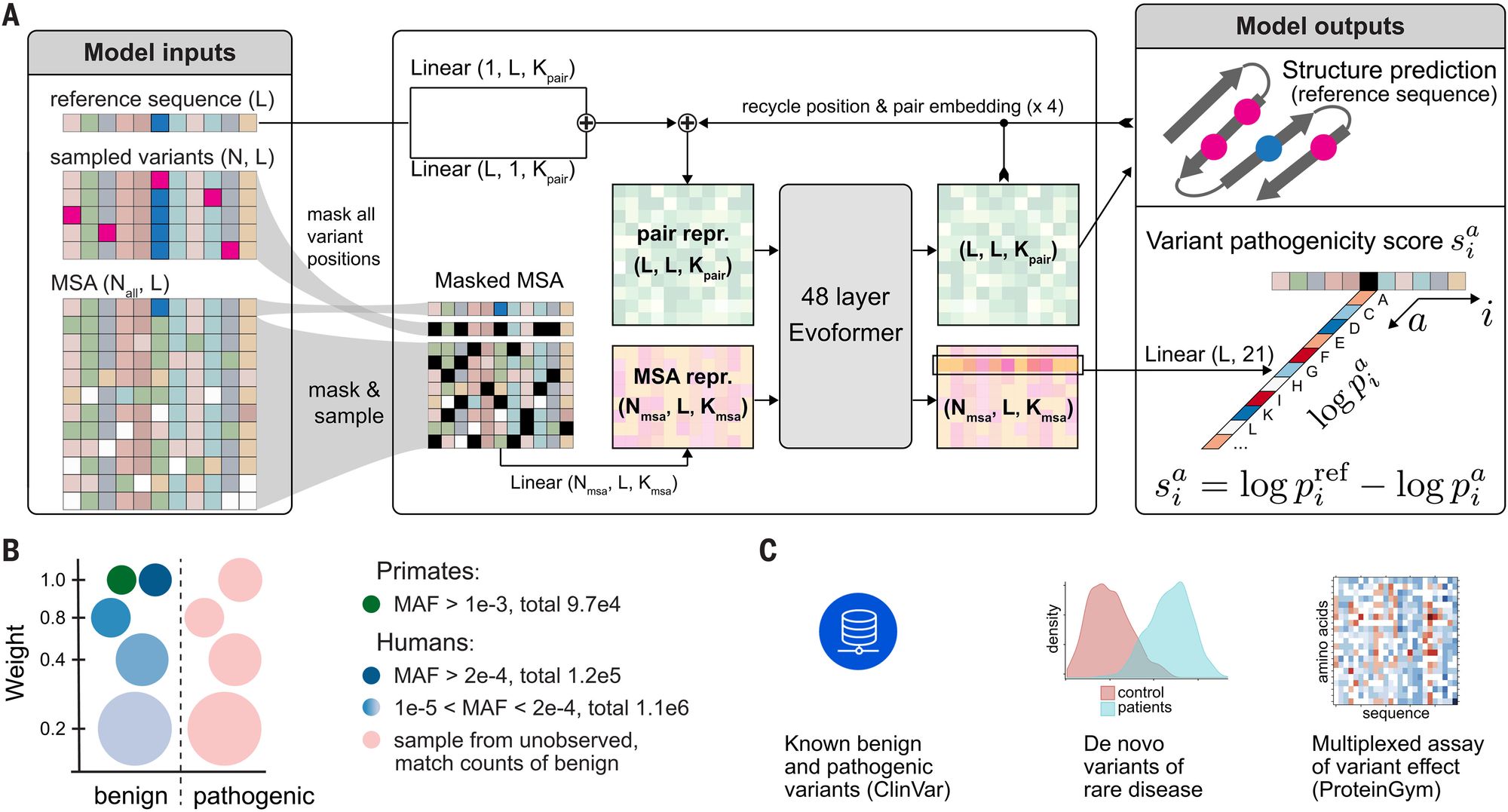
When a missense variant crops up, it has the potential to result in the incorrect assembly of a protein. A missense variant possesses the capacity to modify or disrupt protein functions.
That could potentially lead to significant health issues. AlphaMissense, on the other hand, has the capability to precisely identify these solitary letter modifications and ascertain whether they pose harm or remain benign.
Structural Insight: The AlphaMissense Advantage
In genetics, understanding the structural context of genes and the concept of evolutionary conservation is like having two essential puzzle pieces. AlphaMissense puts these pieces together to provide groundbreaking insights.
Structural context refers to how a gene fits into the larger genetic landscape. Think of it as understanding the words on a page and the entire story. In genetics, it means considering the genetic code and how that code folds into three-dimensional structures. These structures determine how genes function. AlphaMissense excels in this aspect. It doesn't just look at the genetic code; it considers how it's folded and shaped.
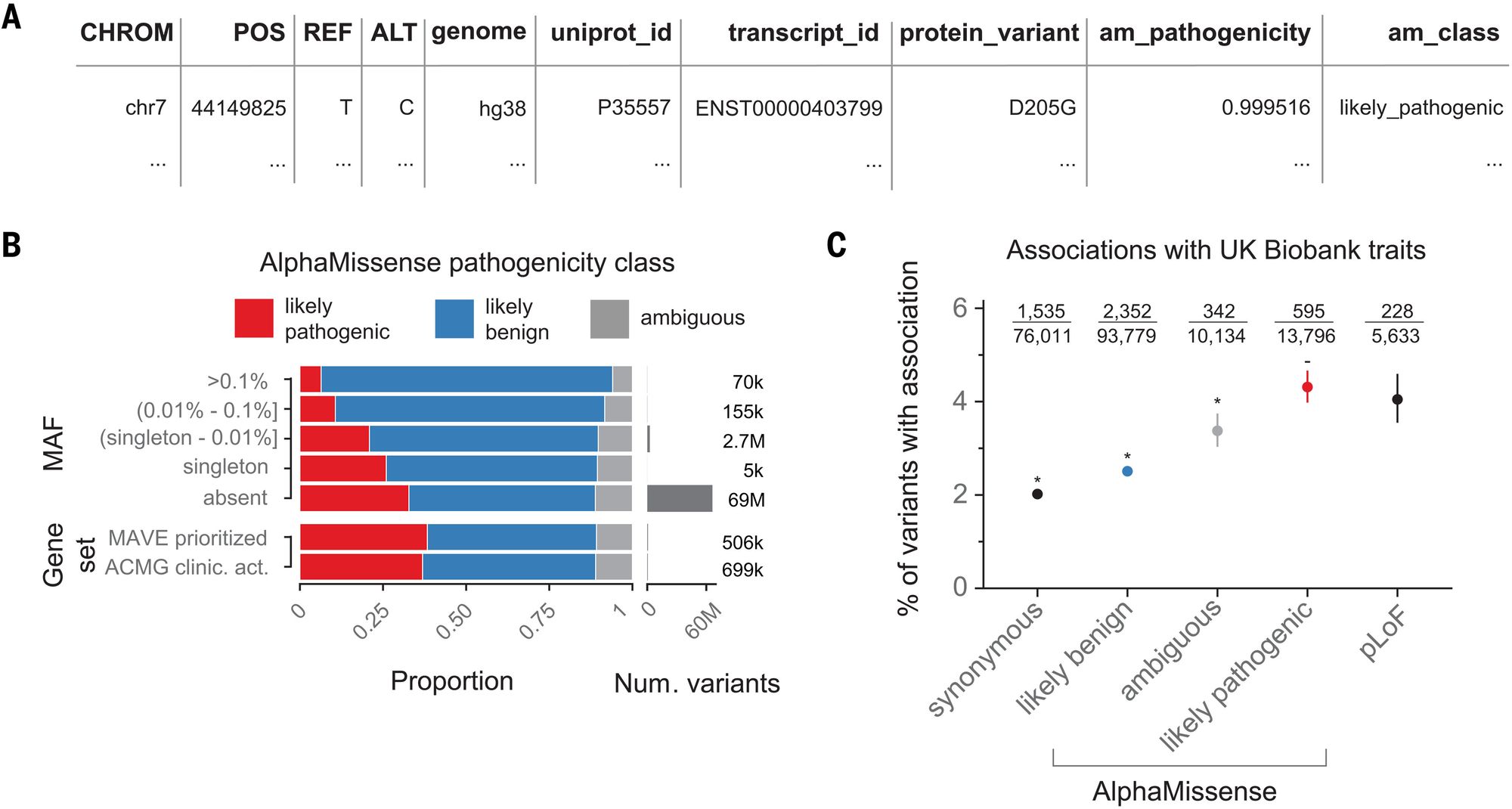
Evolutionary conservation is like a nod to the past. It acknowledges that some genetic elements have been preserved through millions of years of evolution because they're crucial for life. These elements are like a city's ancient, unchanging parts amidst modern skyscrapers. AlphaMissense takes advantage of this by identifying and focusing on the parts of genes that have remained unchanged over time.
Here's where AlphaMissense truly shines—achieving top-notch results without the need for explicit data training. Most software would require extensive training on data to perform well, but AlphaMissense is like a quick learner. It doesn't need a massive dataset to deliver exceptional results.
What are the Pathogenicity Score and Essential Genes?
I hope now you understand the foundations of AlphaMissense. So, let's talk about the average pathogenicity score and its very important role in identifying cell essentiality and short essential genes.
Imagine you're holding a crystal ball that can predict how harmful a genetic mutation might be. That's what the average pathogenicity score does.
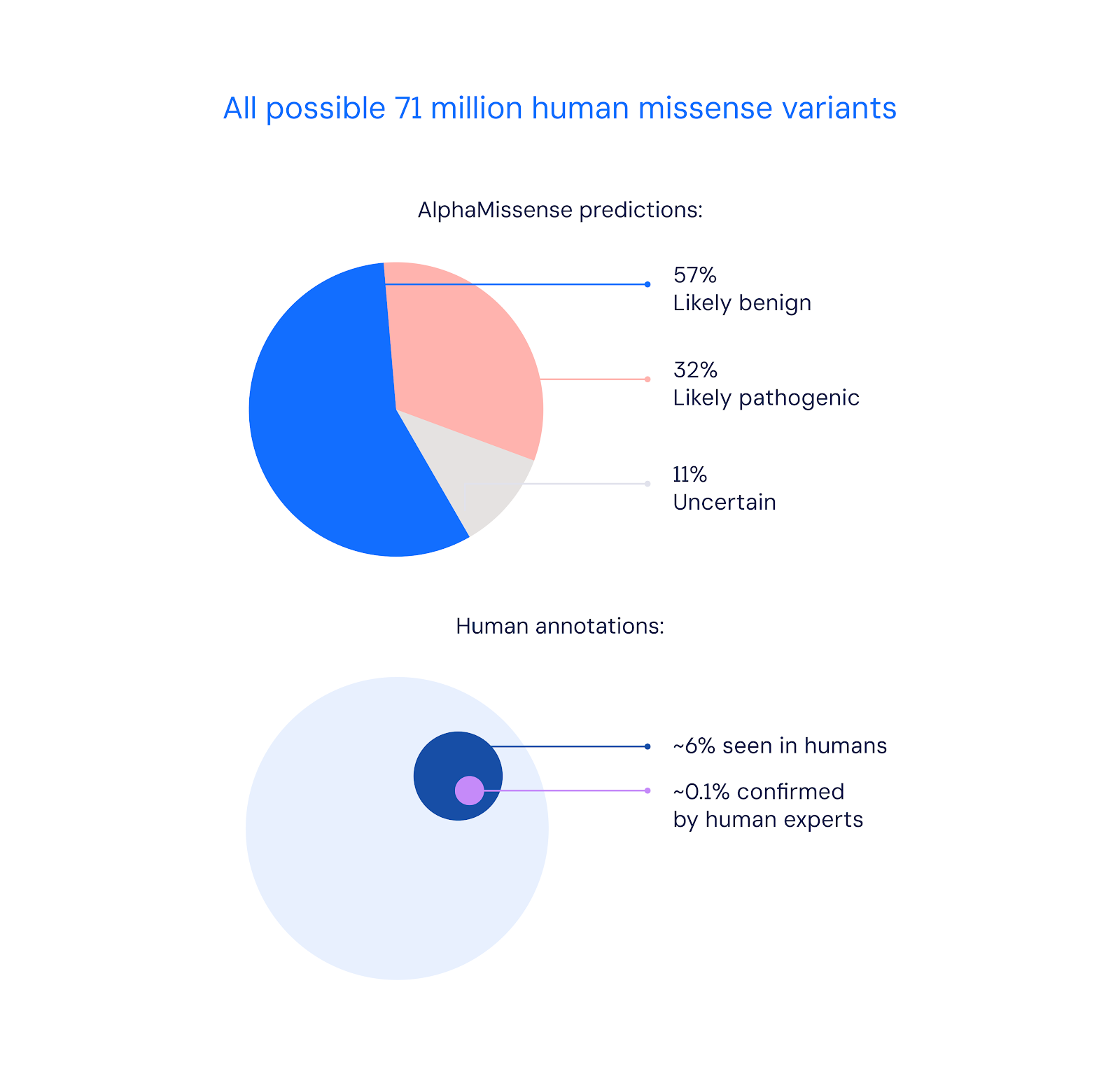
Every genetic mutation can be rated on a scale of harm, from harmless to potentially deadly. The average pathogenicity score calculates the overall danger level of a mutation. It's like averaging out the severity of different weather forecasts to predict if you'll need an umbrella today. AlphaMissense calculates this score.
Picture your body as a well-organized team and genes as the players. Some players, like the star striker in a soccer match, are essential for the game. AlphaMissense is like the coach who identifies these key players.
All jokes aside, when we say "cell essentiality," we mean genes that are absolutely crucial for your body's functioning. But it goes even further. AlphaMissense doesn't just find essential genes; it hones in on short essential genes.
AlphaMissense's Database of Possibilities
Alright, let's talk about one of the most impressive aspects of AlphaMissense—the colossal database of predictions it brings to the table.
This database covers every possible change that can happen to a single building block of your genes, known as single amino acid substitutions.
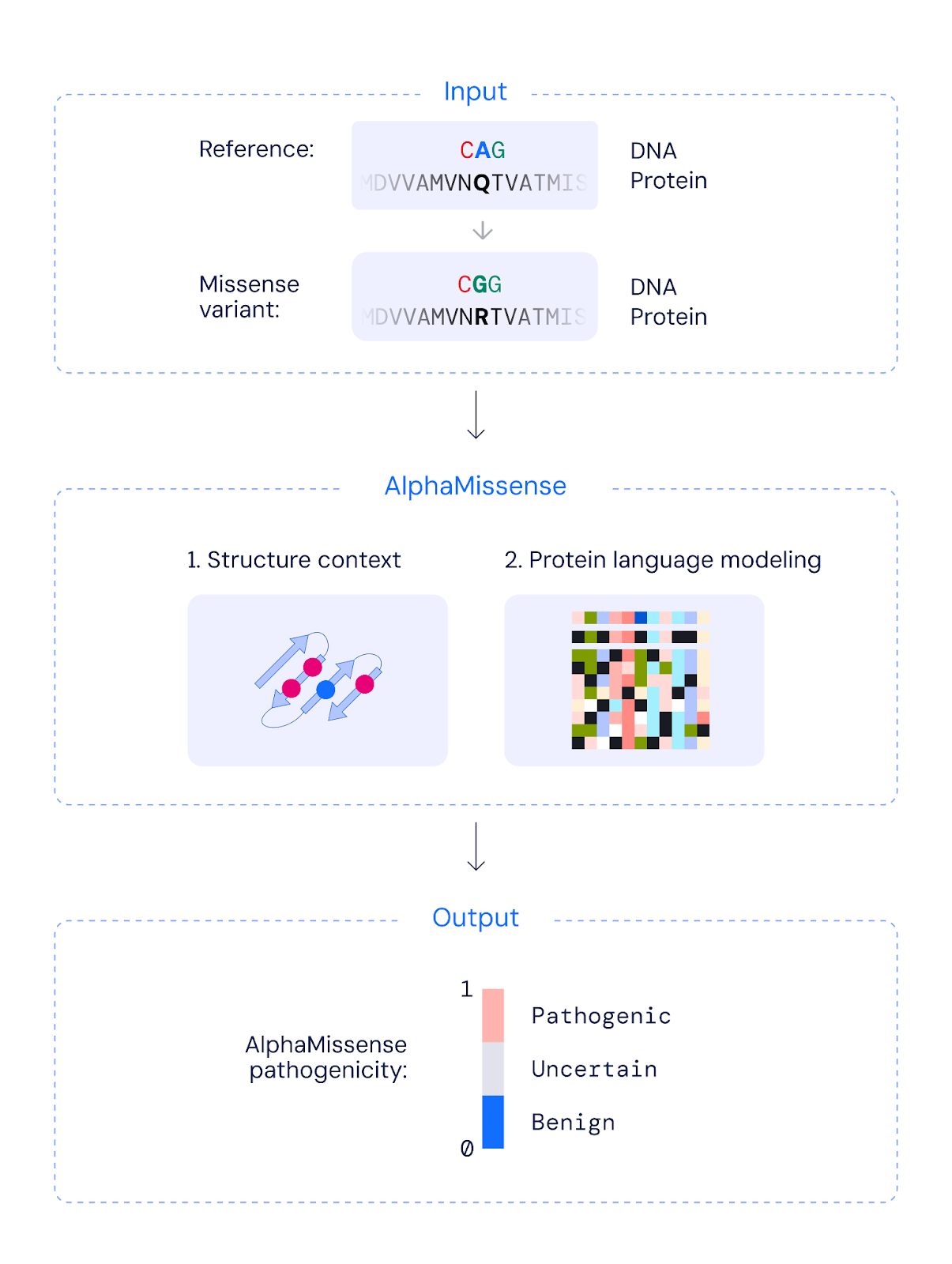
These substitutions are like changing a single letter in a word and seeing how it alters the entire meaning. AlphaMissense meticulously records and predicts the outcomes of these genetic word swaps.
AlphaMissense steps up to this monumental challenge and offers predictions for all these conceivable genetic changes.
AlphaMissense doesn't just dump a mountain of data on us. It classifies 89% of missense variants as likely benign or pathogenic.
How does AlphaMissense work?
How does AlphaMissense fare when it's put to the test, and what could this mean for our health?
First off, AlphaMissense doesn't shy away from a challenge. It boldly takes on a whopping 71 million single-letter mutations that could mess with our proteins.
AlphaMissense, with a precision setting of 90%, expertly categorizes these genetic changes. It tells us which ones are probably harmless and which ones are probably harmful.
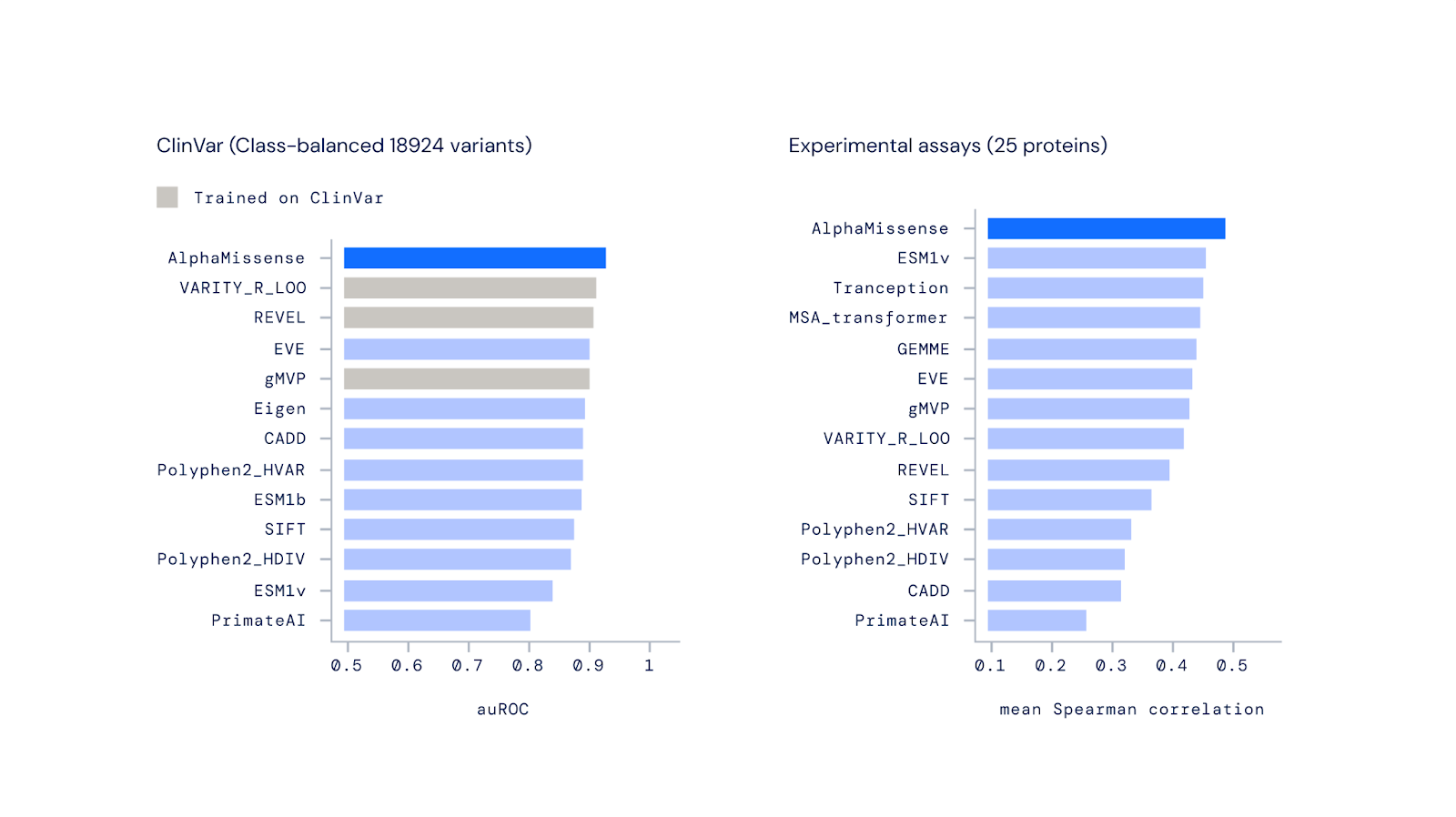
Disease Diagnosis: AlphaMissense isn't just about geeky genetic research.
Treatment Tailored to You: Once you know what's causing a disease, you can target it more effectively. With AlphaMissense's help, scientists and doctors can develop treatments that are tailored to your unique genetic makeup. This means fewer side effects and better outcomes.
Discovering the Unknown: Sometimes, diseases are like hidden villains. AlphaMissense has the potential to uncover these hidden culprits. It might detect genetic mutations that were previously unrecognized as disease-causing.
AlphaMissense vs. AlphaFold: who is better?
You remember, when I introduced AlphaMissense earlier in the article, I mentioned another AI called AlphaFold. Let's understand what makes them unique and how they contribute to genetics and protein research.
So, we've talked about AlphaMissense a bit earlier, and now we've got two heavy hitters in the ring, both packing some serious deep-learning muscle.
AlphaMissense: This AI is all about predicting the effects of missense variants. Remember those single-letter mutations in our DNA? That's its playground. AlphaMissense takes these genetic changes and tells us whether they're good guys (likely harmless) or potential villains (likely harmful). Is training ground? A dataset filled with missense variants.
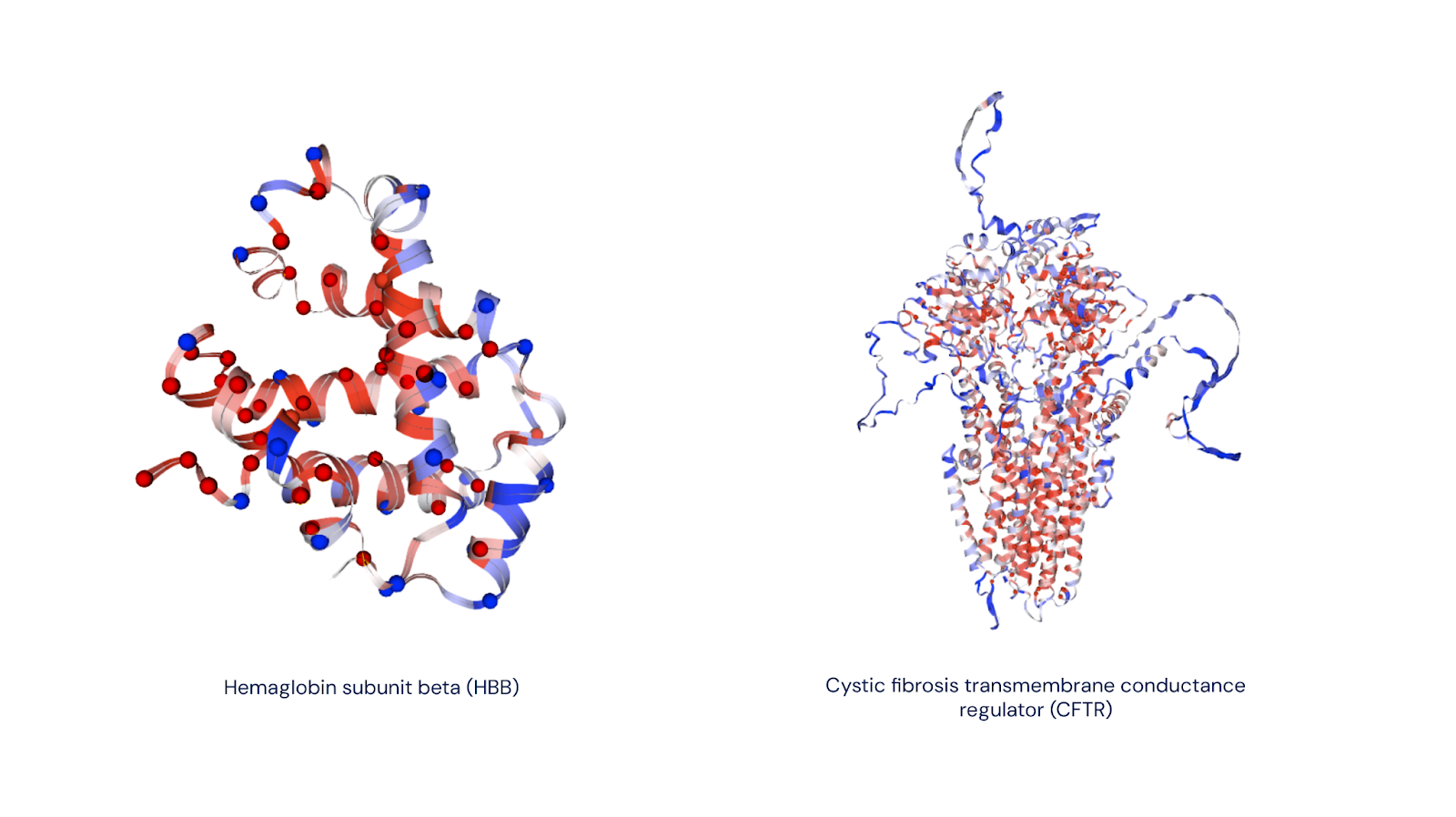
AlphaFold: AlphaFold doesn't dabble in single-letter mutations; it's got its sights set on something grander—the 3D structure of proteins. We can say It's like having the blueprint for a building.
Basically, knowing how proteins are structured helps us understand how they function. AlphaFold does this by training on a dataset of known protein structures.
Now, here's where things get interesting:
While both AlphaMissense and AlphaFold are powered by deep learning, they serve different purposes.
AlphaMissense: It helps geneticists and doctors pinpoint genetic mutations that could lead to diseases.
AlphaFold: AlphaFold plays an important role in drug discovery Because understanding the functions of proteins & the three-dimensional (3D) structure of proteins is helpful in innovating personalized medications and treatments for each patient.
Real-World Impact of AlphaMissense & AlphaFold
AlphaMissense doesn't just do its job; it does it better than existing variant effect predictor software. Diseases caused by genetic hiccups can be devastating. AlphaMissense can help experts swiftly identify disease-causing mutations.

AlphaFold didn't go unnoticed in 2022; it garnered substantial attention as the most referenced paper of the year. This helped researchers to create new medications to fight illnesses such as malaria and COVID-19, to the strides made in the domain of gene therapy. If you want you can checkout theThe source code of AlphaMissense on GitHub page as well.

AlphaMissense and AlphaFold are undeniably remarkable tools. They play a crucial role in our quest to comprehend genetics. Nevertheless, amid our admiration for their prowess, it's essential not to forget the human element.
It's the unwavering commitment of scientists and the hope they inject into the realm of genetics that holds real significance. These tools, under the guidance of skilled and empathetic experts like Pushmeet Kohli, Žiga Avsecare and Jun Cheng (Co writers of the 'Accurate proteome-wide missense variant effect prediction with AlphaMissense' paper)actively shape a healthier future for all of us.
